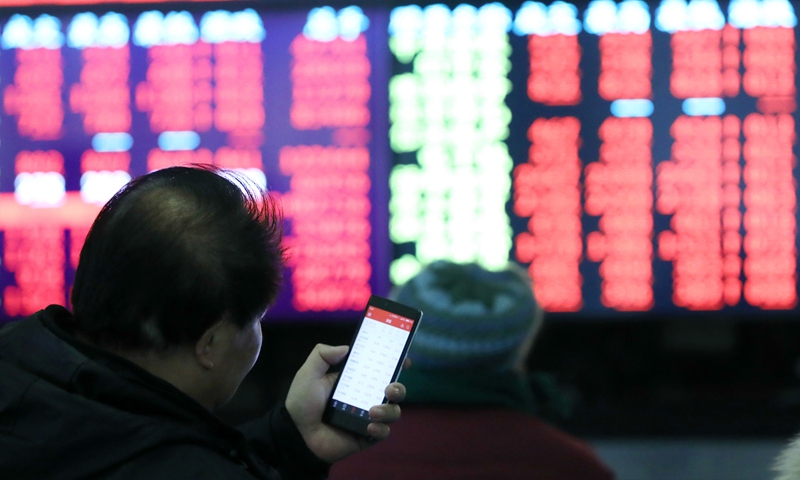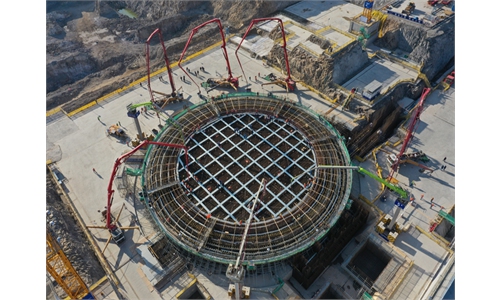Chinese benchmark stock market falls to three-month low in retreat from record highs

Investors are seen at a stock trading hall in east China's Shanghai, Feb. 25, 2019. (Xinhua/Zhuang Yi)
Chinese stock markets have entered a period of sharp retreat from record highs ever since the Year of the Ox Spring Festival holidays, with the benchmark Shanghai market slumping by 1.82 percent to 3,359 points, the lowest level in nearly three months.
The slump was triggered by a wave of panic sentiment as a result of external fluctuations and market worries about policy changes, butsome analysts believe that such correction is approaching the end now with the strong momentum of Chinese economy and the massive US $1.9 trillion stimulus bill, which is supposed to lift market sentiment around the world.
On Tuesday, the Shanghai Composite Index fell by 1.82 percent to 3,359.29 points. This records a 9.1 percent drop from the recent peak of 3,696.17 points on February 19. Meanwhile, the Shenzhen Component Index fell by 2.8 percent to 13,475.7 points, seeing a slump of about 15 percent after it touched a recent high of 15,962 points on February 10.
The nation's ChiNext index, a gauge of small-cap stocks, also slumped about 23 percent after the gauge closed at 3,413 points on February 10, its highest level since June 2015.
Leading the slump are some of China's most popular stocks including the liquor giant KweichouMoutai and LuzhouLaojiao, which have recorded stunning rise in recent years and arepursued by individual investors and fund managers.
Li Daxiao, chief economist at Shenzhen-based Yingda Securities, said that the underlying reason for the slump is the US stock market fluctuation, but the accumulate bubbles on mainland stock markets after a two-year rise, as well as the rising market interest rates have also attributed to the situation.
"But I don't agree that the A-shares are entering a sort of bearish market. Although there have been some corrections, undervalued stocks are rising, and the value stocks are still stable in share price," Li told the Global Times on Tuesday.
US stocks also went through similar share price stampede, with stocks that surged last year, such as Tesla, took a beating in recent weeks.
Yang Delong, chief economist at Shenzhen-based First Seafront Fund Management Co, also told the Global Times that the recent share slump is mostly a result of negative emotion venting as the share price correction sent a wave of panic spread through investors after the Spring Festival holidays. It was also exacerbated by investors' worries about monetary policy changes that would tighten market liquidity.
"The government officials' declaration about stabilizing monetary policy would help dispel some market worries, but whether it will stabilize the stock market needs to be seen later," he said.
However, Yang said that as the government strengthens restrictions on real estate speculation, the trend of deposits shifting to capital markets will not change, and the mainland stock markets will rise in the long run despite intermittent corrections.
Li also predicted that the A-share markets are closer to walking out of the predicament, with the US stimulus bill expected to lift the market sentiment, while the growth momentum of Chinese economy will also lend support to the capital markets.



